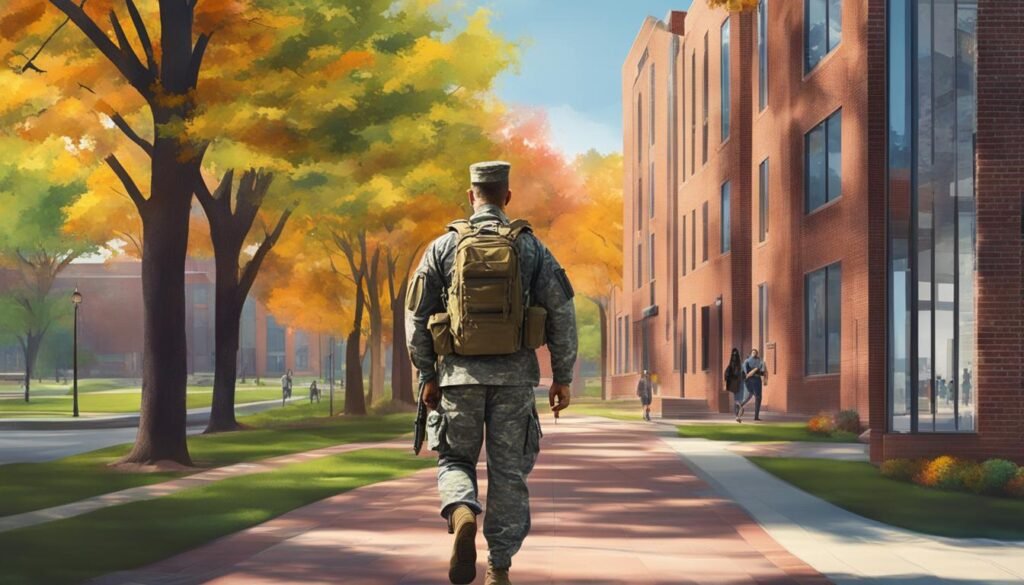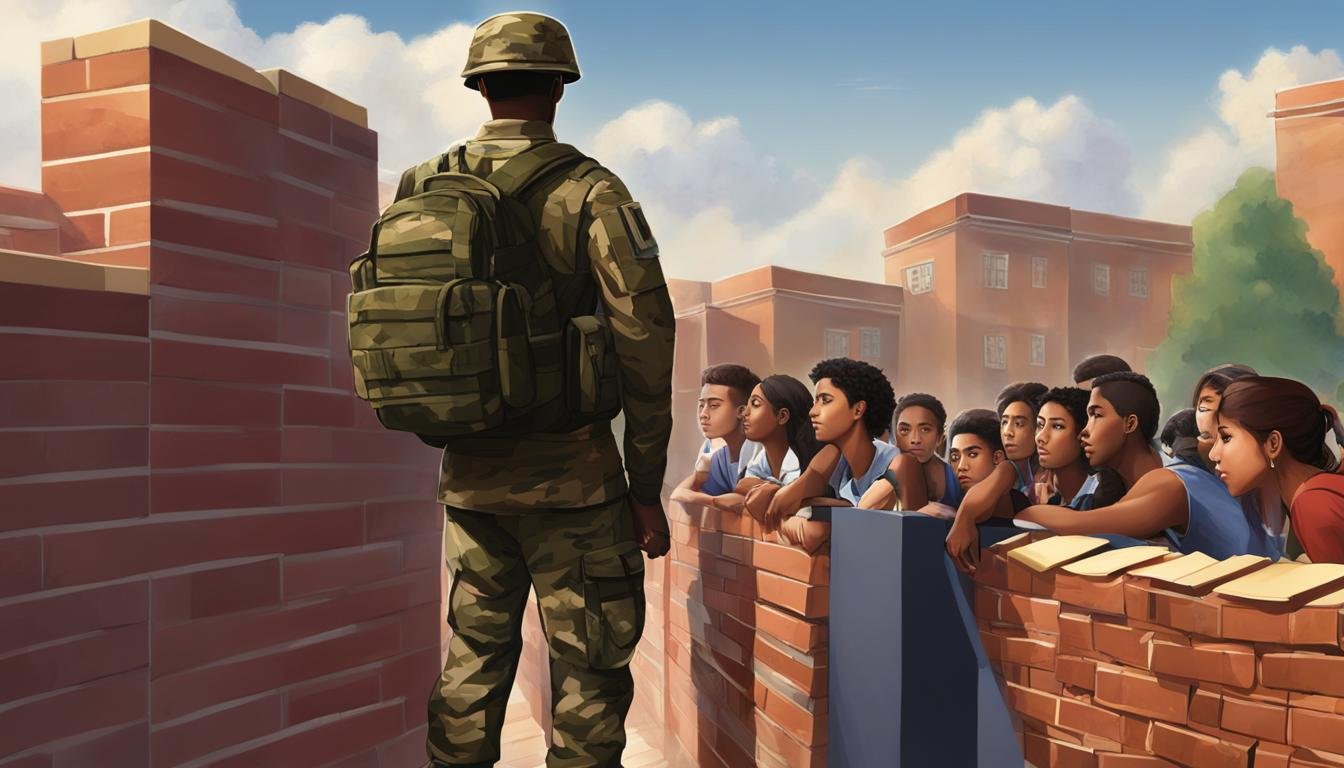The transition from military to college can be challenging, but with the right strategies and resources, you can navigate this process successfully. The Post-9/11 GI Bill® and Forever GI Bill® have expanded opportunities for over 1.7 million military veterans to access college educations. Colleges, veteran’s groups, and student-run organizations offer support systems such as academic counseling, financial aid, and mental health resources. Understanding your eligibility for benefits under the GI Bill® and choosing a school that aligns with your needs and interests is crucial. By seeking support and utilizing resources, you can overcome the challenges of transitioning from military to college life.
Key Takeaways
- Transitioning from military to college can be challenging but is possible with the right strategies and resources.
- The Post-9/11 GI Bill® and Forever GI Bill® provide expanded opportunities for veterans to access college education.
- Colleges, veteran’s groups, and student-run organizations offer support systems to help with academic and mental health challenges.
- Understanding your eligibility for benefits and choosing the right school are crucial for a successful transition.
- Seeking support and utilizing resources can greatly contribute to a successful military to college transition.
Overcoming the Stigma and Seeking Support

Transitioning from military life to college can be a daunting experience for many veterans. One of the challenges they may face is the stigma surrounding their struggles and the hesitation to seek support. However, it is important for veterans to recognize that seeking help is not a sign of weakness but a strength in itself. There are numerous resources and support systems available to assist veterans in their transition process.
Colleges and universities provide support services specifically tailored to veterans’ needs, including academic counseling, financial aid assistance, and mental health resources. On-campus organizations like Real Warriors and Student Veterans of America offer valuable resources and communities where veterans can connect with others who are going through similar experiences. These organizations address common difficulties faced by transitioning veterans, such as cultural adjustments, medical conditions, mental health concerns, and substance abuse issues.
Furthermore, the military itself offers resources and support through programs like the Transition Assistance Program (TAP) and Veterans Affairs (VA) services. These programs provide guidance and assistance in navigating the unique challenges veterans may encounter when transitioning to college life. By proactively addressing these challenges and utilizing available support services, veterans can overcome obstacles and thrive in their college experience.
Remember, seeking support is not a sign of weakness but a necessary step towards success. It is important for veterans transitioning to college to reach out to these resources and support systems, both on and off-campus. By doing so, veterans can make their transition smoother and ensure a successful journey towards their educational goals.
Table: Support Resources for Veterans Transitioning to College
| Resource | Description |
|---|---|
| Real Warriors | A support community offering resources for mental health, substance abuse, and overall well-being |
| Student Veterans of America | An organization connecting student veterans with valuable resources, scholarships, and support networks |
| Transition Assistance Program (TAP) | A military program that provides guidance and support during the transition to civilian life, including college |
| Veterans Affairs (VA) Services | The VA offers a wide range of services, including mental health support, educational assistance, and medical care |
How Can Military Skills Be Applied to Overcome Challenges in the Transition to College?
Transitioning military skills to college can be a powerful asset for overcoming challenges. The discipline, leadership, and problem-solving abilities gained in the military can help navigate the academic and social aspects of college life. Time management and teamwork skills also prove invaluable in the transition to higher education.
Strategies for Academic Success and Mental Health Support
Preparing for the transition from military to college can feel overwhelming, but with the right strategies, you can navigate this new chapter in your life successfully. One of the most important steps is to familiarize yourself with the academic resources available to you. Colleges offer various support services such as academic counseling, tutoring, and study groups that can help you adapt to the college learning environment.
Additionally, organizations like the Warrior-Scholar Project and the National Association of Veterans Upward Bound provide workshops and academic assessment to assist veterans in honing their leadership, problem-solving, and analytical skills specifically for the academic setting. Taking advantage of these resources will empower you to excel academically and make a smooth transition.
While focusing on your academic success is crucial, it is equally important to prioritize your mental health. Many veterans experience challenges such as depression, substance abuse, and post-traumatic stress disorder (PTSD) during the transition to college. Fortunately, there are numerous mental health support services available to veterans.
Whether it’s the mental health services provided on campus or through the Department of Veterans Affairs, resources like Vet Centers, VA support for substance use disorder, Give an Hour, and the Veterans Crisis Line are here to help. Reach out to these services if you need someone to talk to or require professional assistance. Taking care of your mental well-being is essential as you navigate the military to college transition.



